There is no flawless team in this NFL season. The Rams are undefeated, of course, but Sunday was the first game of the season in which their defense delivered the sort of dominant game we might have expected heading into the year. Before this week, no team ranked in the top 10 in both offensive and defensive DVOA. Last year, five teams -- the Saints, Rams, Steelers, Vikings and Super Bowl champion Eagles -- pulled off that feat.
All of those teams are in the postseason discussion this season, but none has been as consistently effective on both sides of the ball as they were in 2017. Every team has some sort of notable flaw or a position that has been weighing it down over the first seven weeks. In some cases, there's an obvious fix. In others, those teams are just going to have to find a way to overcome an issue that isn't likely to go away.
Let's run through anchors holding back many of the league's competitive teams from dominating in more (or all) facets of the game. And let's begin with a problem we might have seen looming before the season even began ...
Jump to a team's flaw:
JAX | PHI | PIT | KC | LAR
WSH | LAC | NE | HOU | MIN
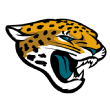
Jacksonville Jaguars
The anchor: Blake Bortles
For the second time in 14 months, the Jaguars seem fed up with their starting quarterback. In August 2017, the Jags briefly benched Bortles during the preseason, only for then-backup Chad Henne to struggle during a Week 3 audition. The team went back to Bortles, who proceeded to have his best season as a pro and played well enough in the second and third round of the postseason to nearly help push the Jags into Super Bowl LII.
After throwing for 376 yards and four touchdowns in Jacksonville's Week 2 win over New England this season, it seemed like Bortles had finally put the doubts to rest. Five games later, however, Bortles was benched for backup Cody Kessler in the middle of a dismal loss to the Texans. Over that time frame, Bortles posted a Total QBR of just 31, the lowest mark in the league among starters. He was 30th out of 34 signal-callers in passer rating, ahead of three rookies. The former third overall pick threw four touchdowns against six picks, took 13 sacks and fumbled four times, losing three. The Jags wanted someone who wouldn't turn the ball over. Bortles has been in The Bad Place.
The offense doesn't look any better on tape. The Jaguars seemed to strike on something by throwing the ball on early downs against the Patriots, but opposing defenses have adjusted. Bortles was 13-of-19 for 203 yards and three touchdowns against the Patriots on first down, but since then, he's 37-of-61 for 384 yards with a touchdown, four picks, eight sacks and a league-low passer rating of 57.0. The average passer rating on first downs over that span is 96.8.
You can't really blame Bortles' receivers, either. The NFL's Next Gen Stats platform suggests that Bortles has open weapons. Over the dismal stretch, a full 50.3 percent of Bortles' passes have been to open targets, the seventh-highest rate in the league. (The NFL defines open receivers as players with 3-5 yards of space between them and any defenders.) When he has had open receivers, though, Bortles is posting a passer rating of just 78.7. Only Bortles and Marcus Mariota have posted a passer rating to open receivers below 105.3.
Even saying that, though, it would be naive to pretend that Bortles is the only issue with the Jacksonville offense, which has been ripped to shreds by injuries. Starting wideout Marqise Lee went down with a season-ending knee injury in the preseason. Former fourth overall pick Leonard Fournette was already out with a hamstring injury during the Patriots game, and since then he has managed only an 11-carry cameo during Jacksonville's win over the Jets. Receiving back Corey Grant, who earned a larger role in the offense in Fournette's absence, hit injured reserve with a foot injury, leading the Jaguars to trade for Carlos Hyde last week. The Jags were also somehow down their top four tight ends on Sunday, which led them to start undrafted free agent David Grinnage. He had only made his NFL debut in Week 6.
The biggest problem, though, is that Jacksonville's offensive line has fallen apart. Starting left tackle Cam Robinson tore his ACL against the Patriots, and while there was a drop-off to backup Josh Wells, the problem got even worse once Wells went on injured reserve. Journeyman Josh Walker has been desperately thrust into mix at left tackle, and he might soon be replaced by Giants castoff Ereck Flowers, who was signed last week. A.J. Cann is the only other lineman to miss a game, but every one of Jacksonville's linemen have either missed time or are playing through injuries.
For those reasons, I'm skeptical Kessler would be a clear upgrade on Bortles. The USC product posted competent numbers in eight games as a rookie starter with the Browns in 2016, but he also was sacked on 9.7 percent of his dropbacks, and that was with a future Hall of Famer, Joe Thomas, at left tackle. Kessler did protect the football, turning the ball over just six times in eight games, and you might figure that the Jaguars would settle for a limited quarterback if he could just avoid giving the ball away.
Ryan Clark and Jeff Saturday discuss the Redskins' win over the Cowboys and how Washington can string a few victories together and extend its division advantage.
If the Jaguars had a better backup, the case for benching Bortles would be compelling. As is, they aren't likely to encounter many significant upgrades in the trade market. They have about $6 million in cap room after trading for Hyde last week, and while they could create more room by restructuring A.J. Bouye's contract, who are the Jaguars going to acquire? Competitive teams won't want to trade away backups like Nick Foles and Teddy Bridgewater. Eli Manning has been a disaster. The Raiders might be too embarrassed to trade Derek Carr, and it would be too much for a one-year rental given that Jacksonville won't want to pay Carr $20 million in 2019.
The two trade candidates who stand out are Sam Bradford and Tyrod Taylor, both of whom flamed out spectacularly in their new digs. Neither would cost very much, but it would take time to learn a new playbook, and they were each playing worse than Bortles has so far this season. If Bortles were injured, trading for Bradford or Taylor would make more sense.
The reality is that there might not be anything wrong with Bortles at all. He just seems to go through stretches like this. From Weeks 2-6 last season, Bortles posted a QBR of 40.1, a stretch that saw him average 6.3 yards per attempt and throw five interceptions on 149 attempts. Over the next three games, Bortles' 90.6 QBR was the best in the league. He posted a league-high passer rating of 128.6 from Weeks 13-15 in 2017, then settled in at less than half that mark -- 62.3 -- over the final two weeks of the regular season and the narrow playoff victory over the Bills. Bortles is like your cat who disappears for two weeks at a time every few months but always somehow finds his way home. Good Blake and Bad Blake are going to show up for different stretches during a typical Jags season.
You might understand why the Jaguars would be sick of that experience, but they're the ones who signed up for a repeat performance. Remember that Bortles was originally in his fifth-year option this season, only for Jacksonville to re-sign him to a three-year, $54 million extension this offseason. The Jags pretended to make the argument that it was to clear out cap space, but they could have cleared out room just as easily by restructuring Bouye's deal.
The Jags don't have to play out that entire deal, but they did it make it difficult to move on from Bortles if he continues to struggle. Before the extension, Jacksonville could have either franchised Bortles after the season, signed him to a new deal or let him leave without any dead money on their cap. Now, the Jaguars would owe a minimum of $10 million in dead money and as much as $16.5 million on their cap if they cut their starter after the season, depending on how much he gets from another team. I think the Jaguars will go back to Bortles for next Sunday's game with the Eagles, but if they're wishing they had a better quarterback, Tom Coughlin & Co. have nobody to blame but themselves.

Philadelphia Eagles
The anchor: Cornerbacks
If you had needed to identify a weak point on the Philadelphia roster before the 2017 season began, the easy spot would have been at corner, where the Eagles were planning on getting by with a bunch of draft picks, low-salary trade acquisitions and one lone free agent, Patrick Robinson, who was making $775,000. The Eagles lost starter Ronald Darby to an ankle injury in Week 1, but the corners came together, aided by excellent work at safety and a superb pass rush. Robinson had a career year in the slot. Rasul Douglas and Jalen Mills held the fort until Darby returned. By the time the postseason rolled around, the Eagles were quite happy with their cornerback play.
Things have not been the same in 2018. Robinson left for the Saints in free agency, and while replacement Sidney Jones has arguably been the team's top corner for most of the season, he was out injured on Sunday and replaced by Dexter McDougle, who was signed off the street last week and immediately inserted into the starting lineup against the Panthers. He wasn't even the problem in the loss!
Darby and Mills are a mess. In the fourth quarter on Sunday, Darby gave a 10-yard cushion and was still badly beaten on a sluggo route for a touchdown by Devin Funchess. On the critical fourth-and-10 conversion that extended the game, Mills wasn't able to sustain coverage on Torrey Smith and then failed to tackle him, turning a 12-yard completion into a 35-yard catch-and-run.
These are not isolated examples. Mills was the primary defender in coverage on three completions of 50 yards or more from Weeks 2-5. Darby missed a tackle on what became a 75-yard O.J. Howard touchdown and has been isolated for two touchdowns inside the 5-yard line.
The numbers are not pretty. When opposing teams threw to their wide receivers last season, the Eagles allowed a Total QBR of 54.7 and a passer rating of 71.2, which respectively ranked third and fourth in the NFL. This season, those same wideouts are generating a QBR of 79.8 and a passer rating of 99.4, which rank 15th and 16th. When the Eagles got pressure in 2017, their defensive backs held up and allowed a passer rating of just 35.1, which was second best in the NFL. That number is all the way up to 64.9 this season, which ranks 20th.
This is the way the Eagles have chosen to build their team. Improvement in the secondary might not be coming. Rodney McLeod is on injured reserve. Malcolm Jenkins has been inconsistent. Corey Graham, 33, already has been benched for converted corner Avonte Maddox. The team restructured Fletcher Cox's contract to create cap space, but the market isn't exactly teeming with star corners unless the Cardinals can be mind-controlled into trading Patrick Peterson. More likely, the Eagles would have to take a flier on an out-of-favor prospect like Oakland's Gareon Conley, which might not solve anything. The Eagles figured this out last season, and they very well might figure it out again. It's also fair to wonder whether last season's work at cornerback set expectations too high for 2018 and beyond.
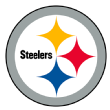
Pittsburgh Steelers
The anchor: Artie Burns
After years of struggling to move on from the Ike Taylor/Troy Polamalu era and running out players like William Gay and Antwon Blake in the playoffs, the Steelers were supposed to have their secondary figured out by now. They used their top two picks in 2016 on Burns and Sean Davis, spent some of the first cap space they had seen in years on Joe Haden, and topped off the bunch by adding Morgan Burnett in free agency and using their first-round pick on Terrell Edmunds. On paper this year, the Steelers were going to have Burns and Haden starring at corner, Davis moving to free safety, Burnett playing as a strong safety/hybrid linebacker, and Edmunds playing everything from slot corner to safety to linebacker.
Things have not gone as planned. Burns has taken a significant step backward in his third year and lost his job to Coty Sensabaugh, with the two eventually falling into a rotation. Cameron Sutton has filled in for an injured Haden. Burnett, who has a groin injury, has barely played. Edmunds has been inconsistent at best; the most notable play of his career has been getting trucked by Kareem Hunt on a touchdown pass in Week 2. Davis has been the best member of the secondary besides Haden, but even he's still figuring out his angles playing center field.
Burns is the biggest disappointment on the team, and it isn't even particularly close. It's asking a lot of him to cover players like Mike Evans and Tyreek Hill, both of whom have torched Burns for big plays this season, but the 23-year-old Burns is a former first-round pick. He is the first cornerback the Steelers had used a first-round pick to nab since Chad Scott in 1997, nearly 20 years prior. The cornerbacks chosen before and after Burns in 2016 -- William Jackson of the Bengals and Xavien Howard of the Dolphins -- are Pro Bowl-caliber corners. The Steelers are counting on Burns to get back on the path to becoming one, too.
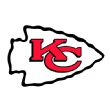
Kansas City Chiefs
The anchor: Eric Berry
Of course, Berry is weighing down the Chiefs by his absence. Kansas City's star safety hasn't played since tearing his Achilles in Week 1 last season, with a Haglund's deformity in his heel keeping Berry off the field for the first seven games of the 2018 season. There's no timetable for Berry's return, and the Chiefs have struggled to keep replacements such as Daniel Sorensen, Eric Murray and Armani Watts on the field in his absence.
In most games, the Chiefs' offense is going to be so good that missing Berry simply won't matter. The Chiefs could have run out Matthew Berry at safety and still handily beaten the Bengals on Sunday night. Against top-level competition, though, the Chiefs are going to miss the five-time Pro Bowler. I mentioned it in breaking down their only loss of the season, when Kansas City ended up with reserve defensive back Josh Shaw matched up against Rob Gronkowski during the critical final drive for the Patriots last week.
Berry is also going to help out a run defense that has struggled. Teams haven't really been in games with the Chiefs to test them on the ground, but Kansas City ranks 30th in the league in yards per rushing attempt allowed and dead last in first-down percentage at 34.4 percent. They rank 25th in win probability added by run defense. Berry is not going to fix that by himself, but he's going to free up resources for coordinator Bob Sutton to focus on stopping the run and make more tackles in the open field.
The Chiefs obviously can't manufacture another Berry, who is occupying $13 million of their cap. They were rumored to be in the market for Earl Thomas, only for Thomas to suffer a season-ending leg injury. There aren't any game-changing safeties looming on the market. They have to hope their offense can carry them long enough for Berry to return, and that he looks like his former self when he does make it back onto the field.

Los Angeles Rams
The anchor: Troy Hill/Sam Shields
The Rams are quite clearly the strongest team in the league, so even their weak point is coming off an impressive game. Hill, starting for the injured Aqib Talib at cornerback, had an impressive interception of C.J. Beathard before leaving with a possible concussion in Sunday's win against the 49ers. He was replaced by Shields, who has mostly been playing special teams in his first action since suffering a concussion of his own in Week 1 of the 2016 season with the Packers.
Whether it's Hill, Shields or Dominique Hatfield, teams are going to try to avoid Marcus Peters and Nickell Robey-Coleman by throwing at Talib's replacement. The Vikings spent much of their day throwing at Shields in Week 4, and the Broncos followed up by attacking Hill in Week 6. Outside of the injury to kicker Greg Zuerlein, the Rams simply haven't dealt with much adversity this season. It's a good problem to have.

Washington
The anchor: Alex Smith
Let's go to a totally different position. Smith isn't playing well for Washington, and while it hasn't stopped Jay Gruden's team from getting out to a 4-2 start, it nearly cost them a win against the Cowboys on Sunday. His numbers were modest -- 14-of-25 passing for 178 yards, 16 yards rushing, one touchdown pass and a fumble -- but they mask what was a very frustrating game from a quarterback who was playing at a far higher level under Andy Reid at this time last season.
Perhaps it's unfair to make the comparisons to 2017, given that Smith exhibited a mastery of deep throws he had never shown before and was unlikely to show again. Indeed, despite the presence of Paul Richardson and Josh Doctson on the roster, Smith has been a middling downfield thrower. On throws 16 or more yards downfield last season, Smith posted the league-best passer rating of 133.5. He averaged nearly six deep attempts per game and 18.5 yards per attempt. This season, while he's averaging an identical number of deep throws, Smith has posted a passer rating of 90.4 on 11.5 yards per attempt, both of which are below league average.
What's more concerning is that Smith hasn't been able to pick apart teams with intermediate throws. On passes 6 to 15 yards downfield over his last three years in Kansas City, Smith was 11th in the league in passer rating at 93.7. This season, his 78.9 rating on those same throws is 24th. He's completing 60 percent of those passes and either hitting too many receivers out of stride or flat-out missing throws.
Smith whiffed on what should have been easy touchdown passes on each of his two red zone trips in the second half Sunday, with Washington settling for field goals. When Washington tried to run out the clock on its final drive and sent out a pass play on third down, Smith scrambled toward the first-down marker but inexplicably allowed himself to be tackled out of bounds, stopping the clock and handing the ball back to the Cowboys with one timeout and 1:18 to go.
Fortunately for Washington, Jason Garrett decided to make a very Jason Garrett set of mistakes. After Dak Prescott drove the Cowboys to the Washington 46-yard line with 52 seconds left, he hit Cole Beasley for a 9-yard completion to get on the edge of field goal range. Garrett didn't use his timeout. The clock ran to 28 seconds, at which point Prescott hit Beasley for another first down. The league confirmed the call via replay with 12 seconds left, giving the Cowboys a chance to call timeout and set up for one more pass to get closer to field goal range. Instead, the Cowboys chose to hand the ball to Ezekiel Elliott, who gained 2 yards and set up a 47-yard field goal try. Garrett took his timeout, Dallas long-snapper L.P. Ladouceur was called for a questionable snap infraction, and Brett Maher missed the ensuing 52-yarder.
Cowboys fans might be upset about the false start call, but Garrett has a long track record of blowing these situations. ESPN's Todd Archer wrote about Garrett mismanaging the clock all the way back in 2012. I've written about Garrett treating field goal range like a binary yes/no proposition going back through the beginning of his tenure. There's absolutely no reason the Cowboys should have settled for 17 yards in 49 seconds when they controlled the clock and had a timeout. They left themselves open to lose the game on a mistake like the Ladouceur false start.
Garrett wasn't the only one having a bad day. Tampa Bay coach Dirk Koetter made this same mistake at the end of regulation, and it ended with Chandler Catanzaro missing a game winner, although Catanzaro later bailed out his coach with a 59-yarder. Had he missed, the Browns would have had limited time to come back and score because Hue Jackson didn't use his timeouts on second-and-22 or third-and-29. And he wasn't the only one misusing timeouts ...
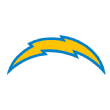
Los Angeles Chargers
The anchor: Anthony Lynn
The 5-2 Chargers survived by the skin of their teeth in London, winning 20-19 when Mike Vrabel's Titans went for a two-point conversion to try to win the game and came up short. I can understand taking issue with the decision to pass on both of the two-point tries, given that the Titans have a mobile quarterback, Marcus Mariota, but I'm absolutely fine with the two-point try.
While the conversation surrounding the play was about unquantifiable measures of aggressiveness and momentum, the reality is that underdogs should strive to reduce the game to as few plays as possible. The Titans were 6.5-point underdogs heading into the game, and while they had played the Chargers close enough to force overtime with a successful extra point, we also know that favorites in this situation win in overtime 56 percent of the time. If you're the favorite, you want to extend the game so you have as many chances as possible to exert your advantage. If you're the underdog, you want to try to sneak one past a favorite as quickly as possible. You would have a better shot of beating Steph Curry in one-on-one to one than playing the Warriors star to 11.
What was more frustrating was Lynn mismanaging his timeouts while the Titans were knocking on the door. After the Titans converted on third-and-4 to make it first-and-goal from the 2-yard line, Lynn let 35 seconds come off the clock before the Titans ran a play with 1:22 to go. That's awful. The most likely scenario is that the Titans score and kick an extra point to tie the score, at which point you're going to hand the ball back to Philip Rivers to try to get you in field goal range. You want as much time left on the clock as possible. The chances of something wonky like a defensive penalty happening are much less meaningful than the chances of getting a shot to win the game in regulation.
Lynn took a timeout after Mariota came up short on third-and-1, but the Titans scored on the next play and the timeout ended up not mattering. There will come a time when it does matter. Mike McCoy used to routinely make mistakes like this early in his tenure with the Chargers, but because they were winning games anyway, he never figured out late-game management. When the Chargers stopped getting so lucky, McCoy's clock management cost them games and cost the coach his job.
The Chargers are a possible top-six team in the NFL, but Lynn has to do his part. He was overly conservative earlier in the game too, passing up a fourth-and-1 in no man's land and punting on fourth-and-4 in Titans territory with 4:59 to go. I think Vrabel's decision was correct, but it's debatable. There's no explanation for passing up a timeout on the goal line for the Chargers.
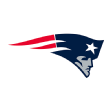
New England Patriots
The anchor: Running backs
Injuries have decimated the Patriots at running back. It seemed almost comical that the Patriots would be thin over the summer, when their depth chart went five deep with viable contributors. Mike Gillislee was cut. Jeremy Hill tore his ACL. Rex Burkhead went on injured reserve with a neck injury. Sony Michel had found a groove, but he suffered a knee injury during Sunday's win over the Bears and appears set to miss time. The only back left from the bunch is James White, who teamed with Kenjon Barner in the backfield for most of Sunday.
Will the Patriots get concerned about their running back issues? Absolutely not. If any team is comfortable substituting running backs from practice squads across the NFL, it's the Patriots, who have spent most of Bill Belichick's tenure getting by with midround draft picks and afterthoughts at halfback. The need for an effective back might be more pressing with Rob Gronkowski injured and more possible touches to go around, but Belichick knows his offense makes the back and not the other way around.
If the Pats need a Michel replacement, you have to imagine they would go look at Gillislee, who was cut by the Saints after Mark Ingram returned. The former Bills standout seemed to disappoint last season, but he still led the league in success rate and wouldn't cost anything more than a plane ticket to sign. New England also might consider trading for two-time Patriots back LeGarrette Blount, whose role in Detroit has become more superfluous with the ascent of Kerryon Johnson.
At this point, outside of Gronkowski's back, the biggest thing that might give the Pats pause would be an injury to White. He has been an extremely valuable player for the Patriots over the past three postseasons, and it's fair to wonder whether the Patriots have limited his workload some to keep him fresh for January. There's no hiding White this season, and Barner would be a pale replacement if the Pats somehow also lost White to an injury.
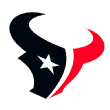
Houston Texans
The anchor: The offensive line
Nobody would have expected the Patriots to need a running back in October. The idea that the Texans would struggle to field a competitive offensive line would have been far less surprising. The best-case scenario would have been that Houston's line stayed healthy, but Seantrel Henderson is already on injured reserve and Zach Fulton missed Sunday's win over the Jaguars with an ankle injury. The bright side is that the Texans delivered what was arguably their best run-blocking performance of the season, as Lamar Miller ran the ball 22 times for an even 100 yards against the league's sixth-best run defense by DVOA.
The bad news was the story that broke before the game: The Texans are already so concerned about Deshaun Watson's chest and ribs that they elected to have Watson take a bus 12 hours from Houston to Jacksonville as opposed to flying with the team. While I'm sure Watson was traveling in a Madden Cruiser level of comfort, the damage already has been done.
Watson is being pressured on 42.2 percent of his dropbacks, the highest percentage in the league by nearly five points. Sunday was the first game in which he wasn't knocked down at least 10 times as a passer, let alone whatever hits he takes as a runner. He's clearly playing through pain and far less than 100 percent already, and while the Texans still have a bye to come in Week 10, that game comes after a tilt in Denver with Von Miller.
What's showing up here is the hidden cost of trading picks to move up to grab a quarterback. The Texans didn't have their first- and second-round picks in this year's draft as a result of the Watson and Brock Osweiler trades, preventing them from using those assets to find offensive linemen to block for Watson. When the Giants outbid everyone for Nate Solder, the Texans were stuck with one of the two or three worst lines in football for their star quarterback.

Minnesota Vikings
The anchor: Injuries on both sides of the ball
The Vikings had more talent to start the season than the Texans, but injuries are capping what this line can do. They lost guard Nick Easton to a neck injury before the season even started, then went without Pat Elflein to start the campaign. Easton's replacement is former Washington utility lineman Tom Compton, who went down with a knee injury in the first quarter of Sunday's win over the Jets and was replaced by Danny Isidora. Left tackle Riley Reiff also missed the victory with a foot injury.
All this has served to make the running game an absolute mess. The Vikings ranked 26th in DVOA heading into the game, and while Latavius Murray took a 38-yard run to the house, his other 14 carries netted 31 yards. Minnesota's 24 rushing attempts netted 88 yards and just three first downs, which is part of the reason the Vikings found themselves going 2-of-15 on third down. Minnesota's identity is as a pass-happy team with Kirk Cousins, Adam Thielen and Stefon Diggs, but they're going to want to run the football against teams like the Rams and Chiefs to eat up clock if they see them in January and February.
In 2016, the line woes sank the offense, while the defense rode an incredible takeaway rate until regressing toward the mean and dealing with an ankle injury to Harrison Smith later in the season. Last year, the Vikings had the healthiest defense in football and went 13-3. Injuries are piling up in 2018. Heading into Sunday, they already were down star linemen Linval Joseph and Everson Griffen, safety Andrew Sendejo and promising rookie cornerback Mike Hughes, who tore his ACL.
Things didn't get better against the Jets. Anthony Barr left the game in the fourth quarter with a hamstring injury, but the more serious injury was to Xavier Rhodes, who had to be carried off the field with an ankle injury. It remains to be seen whether the injury is serious, but the Vikings cannot afford to lose Rhodes and Hughes in a matter of two weeks. Minnesota has one of the deepest defenses in football, but that depth is being sorely tested with months still to go.
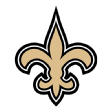
New Orleans Saints
The anchor: Ken Crawley
Every week for the Saints appears to be a game of Hide The Cornerback. Marshon Lattimore has returned to form, but whatever seemed to come over undrafted free agent Crawley last season appears to have worn off. Teams are going after Crawley and fellow cornerback P.J. Williams week after week as they avoid Lattimore, and the Saints don't seem to have an answer.
This week, with the Saints sticking Lattimore on Michael Crabtree, the Ravens got to work with John Brown. The former Cardinals standout caught all seven of his targets for 134 yards and a touchdown. Crawley did come up with a big play late in the game when he knocked down an underthrown Joe Flacco pass in the red zone, but the Saints essentially have a huge bull's-eye painted on one side of the field. Sean McVay is drooling at the idea of going up against Crawley in the NFC Championship Game.
The Saints tried to address cornerback by signing the aforementioned Patrick Robinson this offseason, but he's on injured reserve. They could pursue a trade for a cornerback before the deadline -- these are the perennially all-in Saints, after all -- but they're more realistically going to have to hope that Crawley finds the form that made him look like a totally competent starting NFL cornerback last season. The other solution is just to outscore everyone with Drew Brees each week, and given how well the future Hall of Famer is playing, that seems like a plausible path to the Super Bowl.
